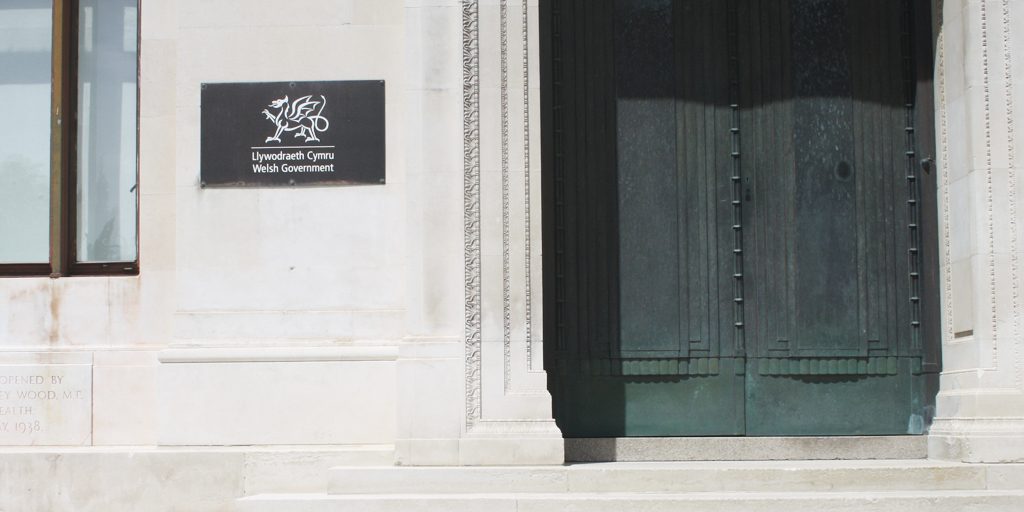On 3 November the First Minister reshuffled the Cabinet and named Jeremy Miles AM as Counsel General designate. On 14 November, in Plenary, the Assembly will vote on whether to approve the nomination so that the First Minister can recommend to the Queen that the appointment be made.
The role of the Counsel General
Section 49 of the Government of Wales Act 2006 (“the Act”) provides for the appointment of the Counsel General to the Welsh Government. The role involves:
- providing legal advice to the government;
- overseeing the work of the Legal Services Department which provides legal services to the Welsh Government;
- overseeing prosecutions on behalf of the Welsh Government;
- overseeing representation of the Welsh Government in the courts;
- considering whether bills passed by the Assembly need to be referred to the Supreme Court for determination as to whether they are within the Assembly’s competence;
- answer questions about his/her work in the Assembly; and
- perform other functions in the public interest including, where the Counsel General considers it appropriate, institute, defend or appear in any legal proceedings relating to functions of the Welsh Government.
This role is analogous with the role of the Attorney-General in the UK Government. 
Terms of appointment
The Counsel General is appointed by the Queen on the recommendation of the First Minister, but the recommendation for the appointment must be approved by the National Assembly. The person appointed need not be an Assembly Member, although an Assembly Member could serve as Counsel General (the First Minister, Ministers and Deputy Ministers are expressly forbidden to do so in the Act). The Explanatory Notes to the Act describe the office as "of 'ministerial' status" but the holder cannot be one of the ‘Welsh Ministers’. In the Fourth Assembly, Theodore Huckle QC, was the first and so far, only Counsel General who was not an AM.
The First Minister may, with the agreement of the National Assembly, recommend to the Queen at any time the removal of the Counsel General; the Counsel General may tender his or her resignation at any time. Unlike Welsh Ministers and Deputy Welsh Ministers, the Counsel General does not have to resign after a vote of no confidence in the Welsh Ministers. However, he or she ceases to hold office on the nomination of a new First Minister under section 47 (but could be re-appointed by the in-coming First Minister).
Participation of the Counsel General in Assembly Proceedings
The National Assembly’s Standing Orders make it clear that the Counsel General will be treated the same as Welsh Ministers in Assembly Proceedings. The one exception is that a Counsel General who is not an AM, will not be able to vote. Standing Order 9.4 states:
If the Counsel General is not a Member, the Standing Orders apply to the Counsel General as they apply to Members and the Counsel General may participate in Assembly proceedings but may not vote.
The Counsel General, whether an AM or not, will be expected to answer oral and written questions and to make oral or written statements.
Section 34 of the 2006 Act deals with the participation of the Counsel General in the proceedings of the Assembly and includes a provision enabling the Counsel General to refuse to provide documents or to answer questions about particular criminal cases if he or she considers that doing so might prejudice the proceedings in that case or would otherwise be contrary to the public interest.
Legal Proceedings
Under section 67 of the 2006 Act, the Counsel General, as the representative of the Welsh Ministers in the courts, will be able to institute, defend or appear in any legal proceedings relating to matters with respect to which any functions exercisable by the Welsh Government, provided the Counsel General considers it appropriate to do so for the promotion or protection of the public interest.
Scrutiny of Assembly Bills by Supreme Court
Section 112 of the 2006 Act provides a mechanism through which either the Counsel General or the UK’s Attorney-General can obtain a decision by the Supreme Court as to whether Assembly Bills or particular provisions of Assembly Bills are within the Assembly's legislative competence. This may only be done within the four week period starting with the date the Bill was passed by the National Assembly. In the Fourth Assembly this occurred on three occasions. Two Bills were referred by the Attorney General (Local Government Byelaws (Wales) Bill 2012 and the Agricultural Sector (Wales) Bill 2014 and one by the Counsel General (Recovery of Medical Costs for Asbestos Diseases (Wales) Bill).
Under amendments made by the Wales Act 2017 the Counsel General or the Attorney General may refer the question whether any provision of a Bill relates to a protected subject-matter to the Supreme Court for decision. Protected subject matter is defined as:
- the name of the Assembly,
- the persons entitled to vote as electors at an election for membership of the Assembly,
- the system by which members of the Assembly are returned,
- the specification or number of constituencies, regions or any equivalent electoral area,
- the number of members to be returned for each constituency, region or equivalent electoral area, and
- the number of persons who may hold the office of Welsh Minister appointed under section 48 or the office of Deputy Welsh Minister
Article by Alys Thomas, National Assembly for Wales Research Service






